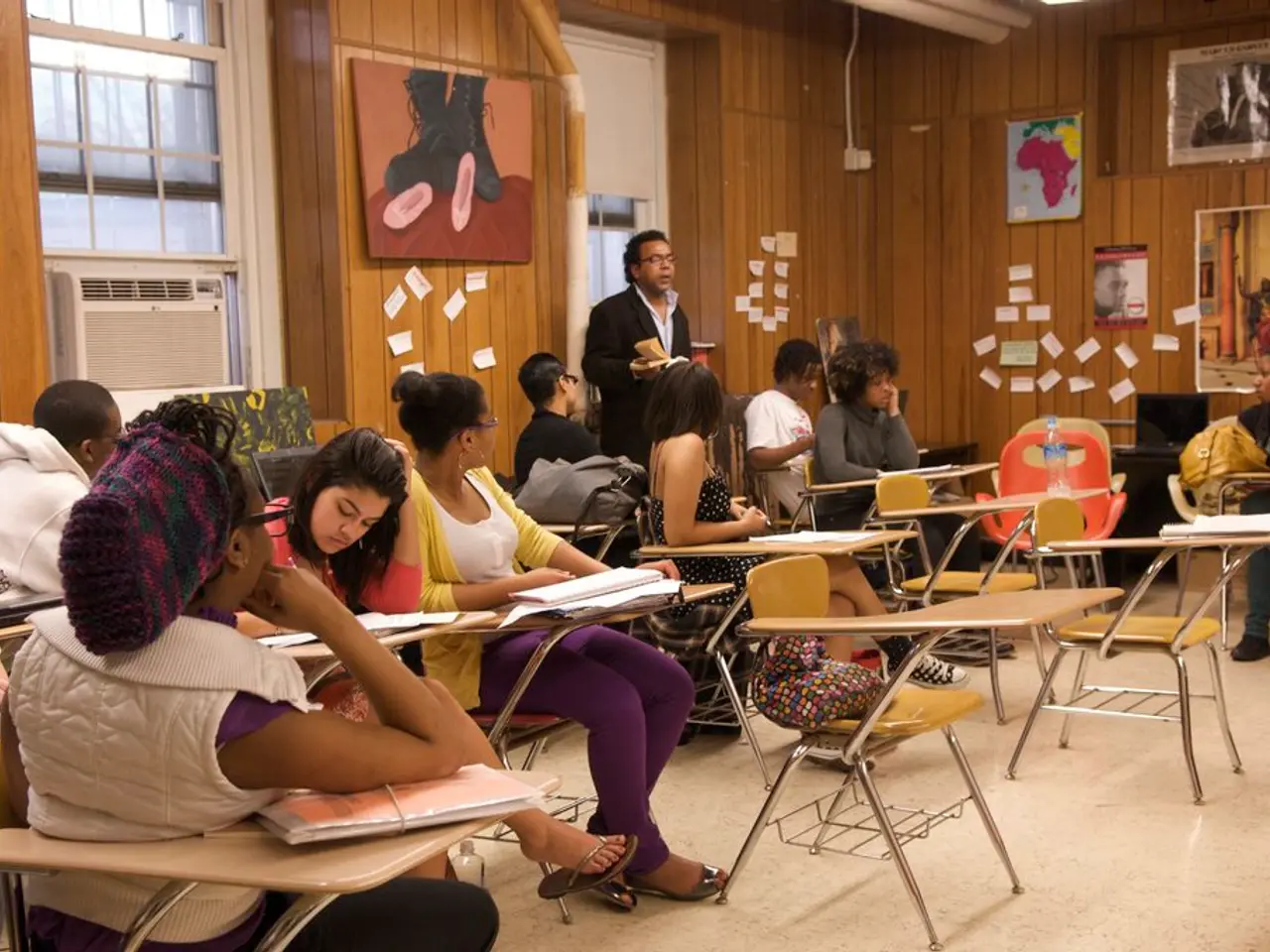Distinct Factors: Experiential Learning versus Conventional Evaluations, Overturning Conventional Learning Paradigms
Experiential learning is revolutionising the educational landscape, offering a fresh approach to teaching and assessment that prepares students for the modern workforce. This method fosters holistic skill development, including critical thinking, communication, emotional intelligence, leadership, teamwork, and adaptability, all through project-based challenges.
Unlike traditional assessments, experiential learning emphasises hands-on experiences, real-world application, and continuous feedback. It evaluates students through portfolios, project presentations, peer collaborations, and self-assessments, providing a more comprehensive and flexible evaluation system.
In team-based projects, students collaborate on complex challenges, dividing responsibilities, negotiating diverse perspectives, and combining diverse skills to reach common goals. These assessments evaluate communication abilities, leadership potential, and the capacity to contribute to group success.
Experiential learning bridges the gap between classroom concepts and real-world challenges by using hands-on problem-solving to evaluate students' ability to synthesise knowledge, collaborate effectively, and adapt strategies based on real-time feedback.
Traditional assessments, on the other hand, primarily test students' ability to store and retrieve specific information under timed conditions. Methods like multiple-choice questions, fill-in-the-blank exercises, and structured essays dominate these assessments.
While traditional assessments offer clear benchmarking, they often fail to foster deep understanding, adaptability, or continuous learning habits required in modern jobs. They may also overlook individual learner needs and motivation, which are better addressed by experiential and personalised learning approaches.
Experiential learning promotes higher student engagement and active participation by involving learners in adaptive, tailored activities that match their interests and pace. It encourages competency-based education models that allow students to master skills at their own pace, gain practical experience through real-world scenarios, and be assessed via diverse formats such as projects and oral presentations.
However, experiential learning may sometimes lack immediate measurable improvements in specific technical skills if not well-integrated with practical components. Traditional assessment methods, grounded in fixed pacing, exams, and passive learning, often fail to foster the practical skills, problem-solving abilities, and creativity needed in real jobs.
In summary, the benefits of experiential learning over traditional assessment in workforce preparation include improved engagement, skill mastery, flexibility, motivation, and practical readiness. However, it's crucial to balance both approaches to ensure standardised skill verification and practical experience. Traditional assessments offer clear benchmarking but often at the cost of student motivation and applicability to real-world challenges. Balancing both approaches could offer optimal preparation for modern careers.
References:
[1] Bichelmeier, B. (2017). The Power of Active Learning: Engaging Students in the Classroom. EDUCAUSE Review, 52(3), 1-19.
[2] Chickering, A. W., & Gamson, Z. F. (1987). Seven Principles for Good Practice in Undergraduate Education. AAHE Bulletin, 39(7), 3-7.
[3] Collins, A., & Halpern, D. F. (2015). Improving Student Learning: A Review of the Evidence. Washington, DC: National Academies Press.
[4] Dede, C. (2014). The Role of Technology in the Future of Education. Educational Technology, 54(1), 1-11.
E-learning platforms, focusing on education-and-self-development and personal-growth, can incorporate experiential learning techniques to enhace the learning process. These platforms provide a comprehensive approach to learning, offering opportunities for hands-on experiences, real-world application, and continuous feedback.
As students progress in their e-learning journeys, they can engage in project-based challenges that foster skills like critical thinking, communication, emotional intelligence, leadership, teamwork, and adaptability – all essential for personal growth and professional success.




